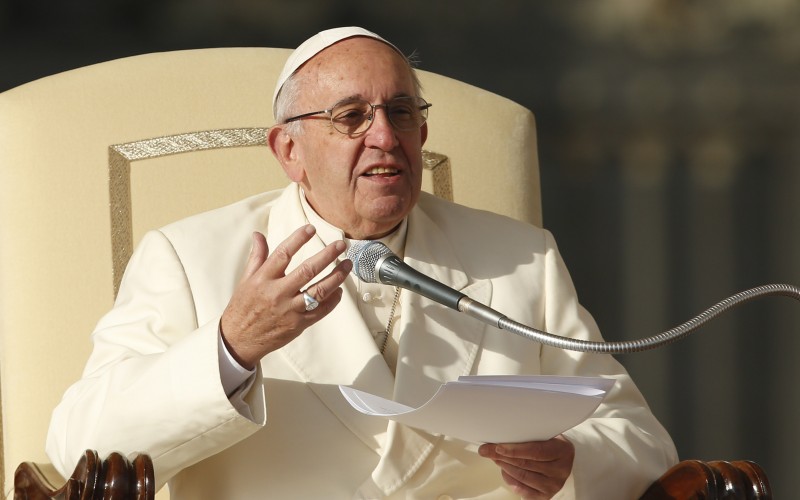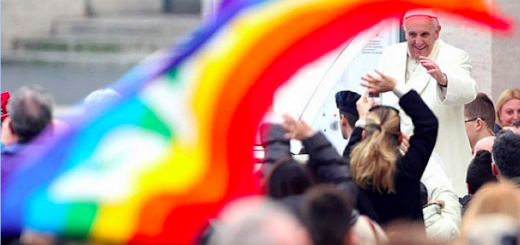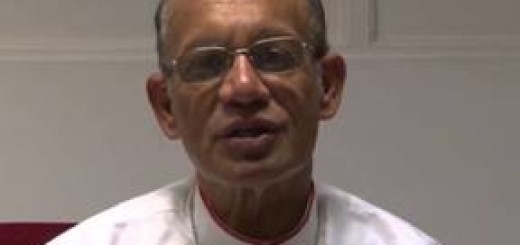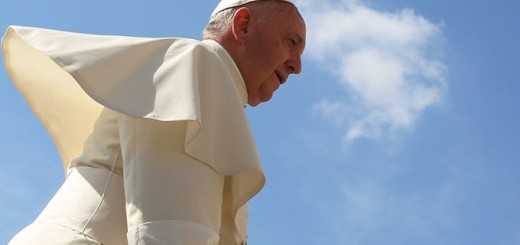Anyone who speaks critically of the Pope is not risking their immortal soul

The Pope is only infallible when speaking on faith and morals, ex cathedra
Some years ago now, I used to sit in the aula of the Gregorian University and listen to the lectures of Don Rino Fisichella, a Roman priest, who lectured on the credibility of Revelation. He was a stimulating lecturer, though he sometimes got carried away, I seem to remember.
He is now an Archbishop and in charge of the New Evangelisation, and he seems to have got carried away again, suggesting that to criticise the Pope is the equivalent of a physical attack on him, which carries the penalty of automatic excommunication. In fact, a distinguished canon lawyer explains that this is simply not the case.
The Church has been here before. In the period of the Italian Risorgimento, the Piedmontese state made war on the Papal States, eventually driving the Pope out of Rome and making him the prisoner in the Vatican.
This act of unprovoked aggression (which was supported by Britain, sadly) led to a canonical debate: was this an assault on the person of the Holy Father, and if so, by whom, and who was excommunicated as a result? Minimalists thought that King Victor Emmanuel and Camillo Cavour, who had led the war on the Pope, were excommunicated; maximalists took the view that anyone who made common purpose with them, which included the common soldiers and most of the Italian population, were also excommunicated.
One thing is for sure: Cavour and Victor Emmanuel were both reconciled to the Church on their deathbeds. They both knew that to die excommunicated from the Catholic Church was to imperil their immortal souls, and so were taking no chances. It is said (at least Augustus Hare reports it in his Walks in Rome) that the Blessed Pius IX himself wished to rush to the deathbed of King Victor Emmanuel, to reconcile him personally, but was forcibly prevented by the Jesuits from doing so. It may not be true, but it is certainly a good story.
So, it is nice to know that anyone who speaks critically of the Pope is not risking their immortal soul and excommunication latae sententiae. But perhaps Archbishop Fisichella’s remarks are a defensive reaction to the rising tide of criticism directed at the Holy Father. If so, this anxiety is surely misdirected. The Pope has asked for bold speaking, or parrhesia. Moreover, the Pope is a Jesuit, that is a member of a religious order, in which fraternal correction is quite usual. It is surely in this light that matters like this open letter to the Holy Father should be read.
But how can someone who is infallible be subject to fraternal correction, you might well ask? But to ask that is to presuppose a maximalist position on Papal infallibility that many attribute to the Church, but which the Church has never held. The Pope is only infallible when speaking on faith and morals, ex cathedra. He is not infallible when speaking, for example, on economic matters, or scientific matters such as climate change.
It is perfectly acceptable for a good Catholic to interrogate the words of the Pope that are uttered in non-ex cathedra situations, whether it be mid-air press conferences, or unrecorded interviews published by nonagenarian journalists, as well as that now notorious Christmas address to the Roman Curia.
















